Building strong health systems: three roles for private companies
Dec 07, 2021 - Reading time 5-7 minutes
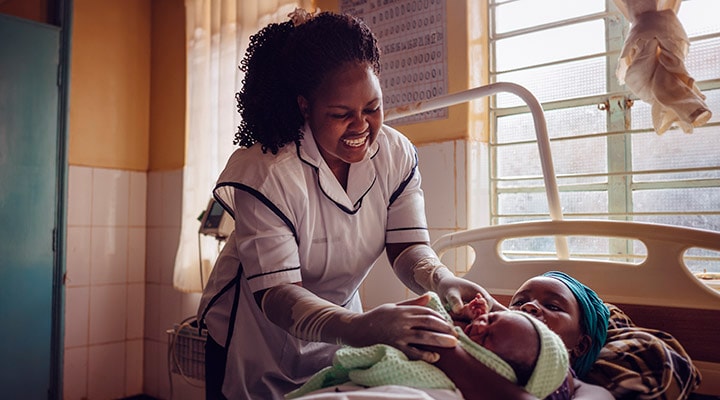
Photo: Amref Flying Doctors, Gregg Telussa
According to the World Health Organization and the World Bank, up to 3.5 billion people – half the world’s population – lack access to the health services they need [1]. The current pandemic has only intensified this situation, overwhelming global health systems, exacerbating health inequities and forcing vulnerable populations into even more precarious positions. The pandemic has also stalled progress towards achieving universal health coverage (UHC) by 2030, the commitment made by all United Nations member states in 2015, and the COVID-19 response has made it clearer than ever that health coverage within and across countries is deeply uneven. Here are three ways the private sector can help bring together tools, funding, and expertise as a means of strengthening health systems:
As we enter the third year of the pandemic, we can’t allow progress towards universal health coverage to slow. Though the pandemic has unlocked massive healthcare spending, crisis spending doesn’t equal long-term health system improvement or added resilience.
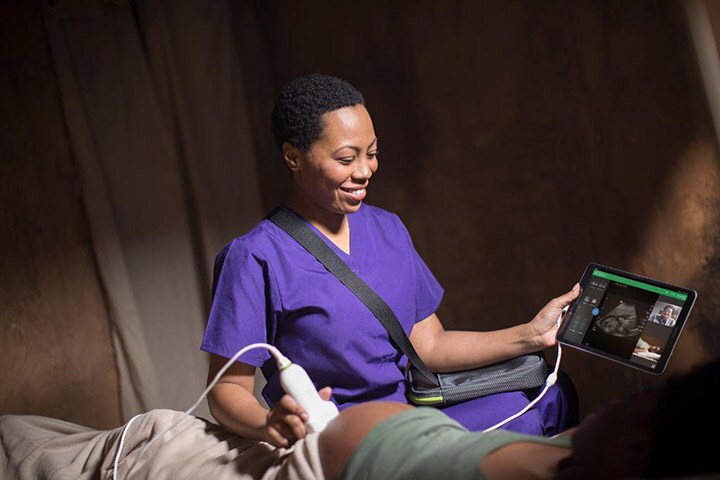
Digitalization: transforming healthcare through technology
Not only has the pandemic reignited the call to build more robust and resilient health systems, it has also accelerated the digital transformation of healthcare and the widespread adoption of digital technologies. These innovative technologies, especially when made more accessible to people in underserved and remote communities, can help address global health challenges, like the rise of non-communicable diseases and maternal and infant mortality.
In rural Brazil, for example, getting the right diagnosis and care for diseases like diabetes and hypertension often requires traveling to an urban medical facility – a trip not everyone can afford, particularly not on an ongoing basis. Even in cities, doctors with the right medical specialties aren’t always available. Working with SAS Brazil, a non-profit organization, Philips and Philips Foundation are bringing to rural areas container structures equipped with technologies like ultrasound, electrocardiogram, and software for monitoring pregnant women. The container structures offer a dental room, procedure room, office, and teleservice booth with virtual care available for 22 medical specialties.
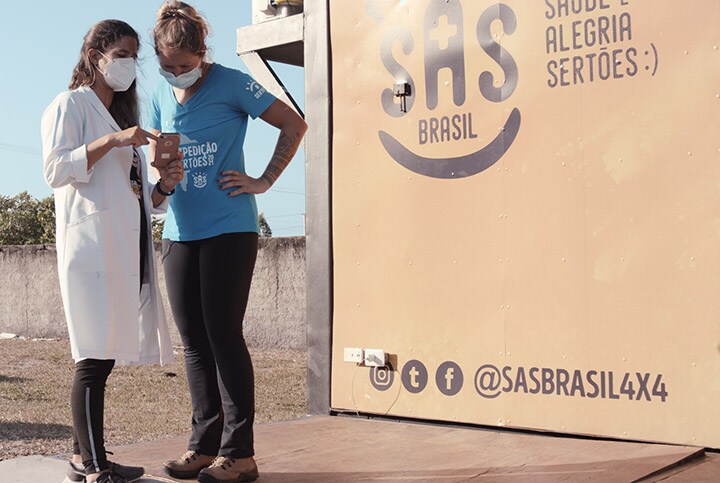
In the Republic of Congo, the United Nations Population Fund (UNFPA) and the Government of the Republic of Congo in partnership with Philips are implementing the Eboteli program to strengthen maternal and child health. As part of the first phase of the program, 19 facilities at the primary and hospital level are currently being upgraded and provided with modern infrastructure, energy, water, medical equipment, software and services. The program is impacting the lives of 500,000 women and children, and the intention is to scale it nationwide. Projects like this one are especially vital since COVID-19 has dealt a disproportional blow to women and girls, particularly those living in low- and middle-income countries [2]. Leveraging private-sector solutions and expertise can help accelerate the digital transformation of healthcare and speed progress toward achieving universal health coverage. When approached inclusively to prevent a growing digital divide, digital transformation can improve overall health system efficiency and effectiveness, as well as increase much-needed access to healthcare via innovative technologies, like portable ultrasound, and through the virtualization of care. Measuring our impact helps us make certain we are contributing quantifiably to the global effort to ensure every person – no matter who they are or where they live – has access to quality healthcare.
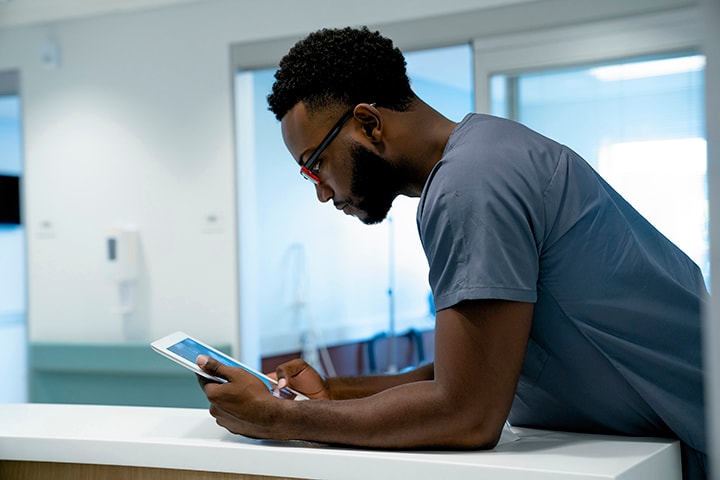
Financing solutions: impact investments to help expand primary care
There is an urgent need for more and better investments in health systems, grounded in primary health care, to ensure that no one is left behind. Companies can help by collaborating with development financial institutions to provide financial solutions that meet the specific needs of healthcare providers. Financial solutions can include development capital for feasibility, patient funding for early scale, easy-to-access digital loans, and performance- or usage-based funding models. By contributing to large-scale social impact funds, companies can help increase overall investments. In recognition of the catalytic role the private sector can play in mobilizing primary care funding, Philips is working with investors, such as Investment International (formerly FMO) to unlock primary health care investments for underserved communities in Sub-Saharan Africa, and partnering with organizations like Total Impact Capital and the Health Finance Coalition. One financing initiative that helps make primary healthcare more accessible across Africa applies a ‘double blended finance approach’ that not only blends the funding on the investment side but also engages with the broader ecosystem to strengthen the revenue side of projects.
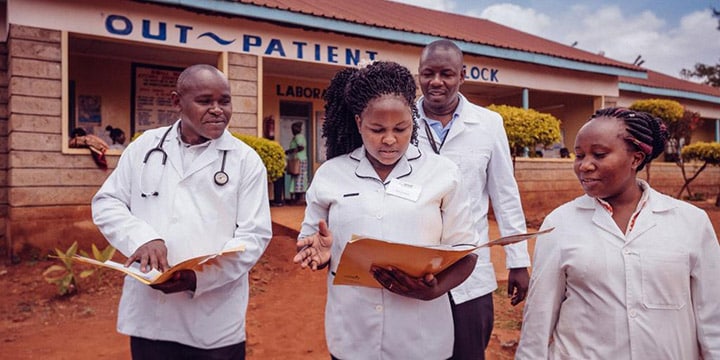
Impact financing offers new opportunities for projects that traditional banking partners are often unable to fund (due to high risks and low returns) but which deliver a high social return. Philips Foundation, for example, has created a new social impact investment vehicle that aims to accelerate the development of potentially high impact access-to-care opportunities and reduce healthcare inequality by nurturing early-stage social enterprises through stage-appropriate investments and support.
Collaboration: partnerships that deliver meaningful results
Integral to the digital transformation of healthcare is the need for collaboration among different sectors. Opportunities are emerging to partner in new ways that leverage both public and private expertise. For example, Philips and the Bill & Melinda Gates Foundation recently announced a project to develop an artificial intelligence (AI) based application suite to improve the quality and accessibility of obstetric care in low- and middle-income countries. The project aims to significantly reduce the number of women who die from preventable causes related to pregnancy and childbirth, currently over 800 women every day worldwide [3], while also reducing fetal mortality and morbidity.
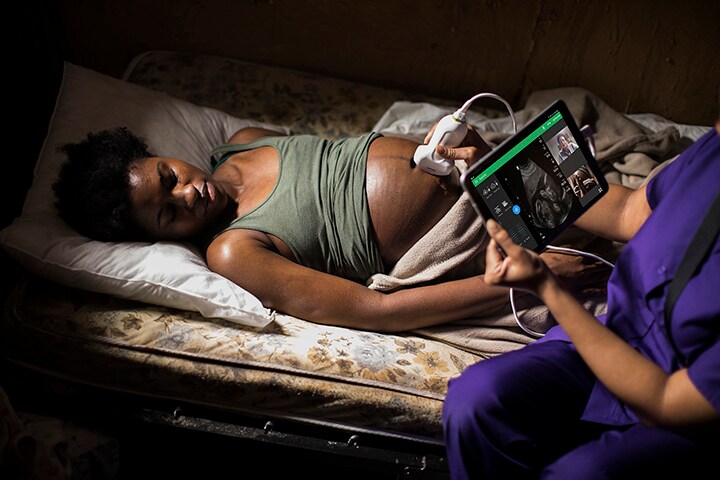
A longer collaboration is the eight-year partnership between Amref Health Africa and Philips to transform healthcare delivery across Africa. The Partnership for Primary Care business model (jointly developed by Amref and Philips), represents the first scalable public-private partnership model for primary care in Africa. Results from the pilot in Makueni County: 90% more people seek care at the right time and the right place and almost 50% more women deliver their babies in a facility. These outcomes demonstrate that good quality healthcare can be delivered in a scalable and financially sustainable way without incurring financial difficulties for the people in the communities. When private companies, non-profit organizations, governments, and other health ecosystem partners combine their expertise to strengthen health systems, they can deliver more impactful results. One platform – the Digital Connected Care Coalition (DCCC) – aims to bring together private companies, public entities, non-governmental organizations, social entrepreneurs, and funding organizations to support more efficient partnerships across sectors. The DCCC was initiated in 2019 to accelerate the digital transformation of healthcare in low- and middle-income countries to help achieve universal health coverage. What sets the DCCC apart is its action-oriented approach to drive impact on the ground, using its network and embedded capabilities to facilitate digital health projects in several countries. These collaborations help set a precedent for more active involvement by private companies in strengthening health systems and for stronger ties between the public, private and non-profit sectors to help solve global health challenges.
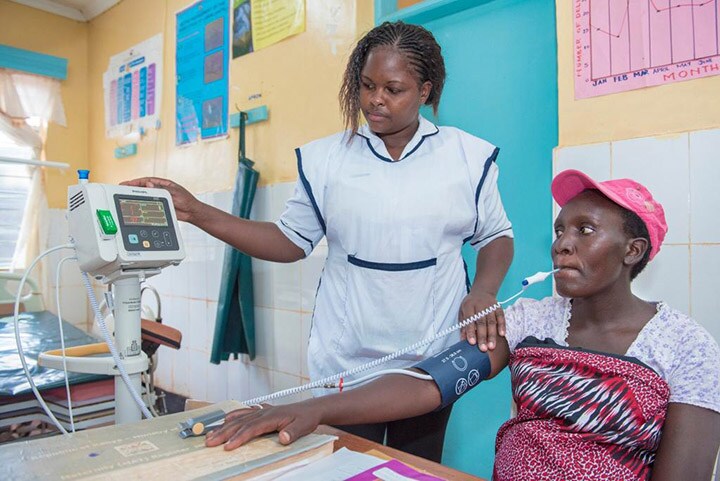
Investing in quality healthcare for all
Universal health coverage is about ensuring people everywhere can access the quality health services they need, when and where they need them, without suffering financial hardship. But there is no easy path to achieving it. Our collective health depends on making sure temporary setbacks do not become permanent trends. The promise of health for all needs to be part of COVID-19 response and recovery strategies so that healthcare systems around the world can respond equitably and sustainably to swelling demands and future crises. [1] World Health Organization. https://www.who.int/healthinfo/universal_health_coverage/report/uhc_report_2019.pdf?ua=1 [2] United Nations Population Fund (UNFPA). https://www.unfpa.org/sites/default/files/resource-pdf/COVID-19_impact_brief_for_UNFPA_24_April_2020_1.pdf; US Global Leadership Coalition. https://www.usglc.org/coronavirus/women-and-girls/ [3] World Health Organization. https://www.who.int/news-room/fact-sheets/detail/maternal-mortality
Building strong global health systems will take a collaborative approach that involves all ecosystem stakeholders. It means stepping up efforts to accelerate digital transformation as an enabler of better healthcare access and creating financing solutions that can unlock both public and private investments. Broad engagement is needed to ensure healthcare systems around the world are resilient and capable of meeting everyone’s needs – now and in the future.









